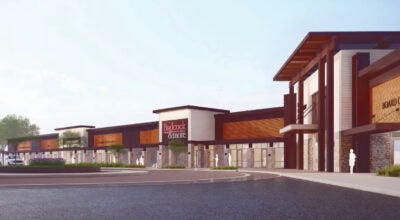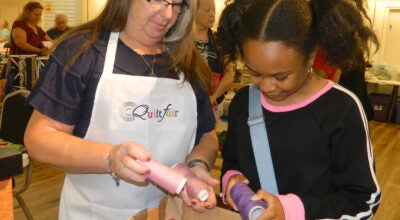‘Change is good,’ former Pillowtex worker says
Published 12:00 am Wednesday, December 2, 2009
By Joanie Morris
jmorris@salisburypost.com
KANNAPOLIS ó Joe Littlejohn was lying in a hospital bed on July 30, 2003, recovering from hip replacement surgery when he found out he no longer had a job ó or insurance.
He left the hospital that day knowing he would never work again.
Littlejohn had planned to go back to Pillowtex after he recovered from his surgery.
“I didn’t know how bad it was,” he said of the troubles that eventually closed the company. “I had to leave the hospital because my insurance was canceled.”
Littlejohn injured his hip while serving in Vietnam and had worked in the mill for 35 years when in January 2003, the hip completely gave out. He was disabled and went in for surgery on July 28, 2003.
“They didn’t ever pay me (disability) from February all the way up until I had surgery,” said Littlejohn, who was expecting to get that check. “I didn’t get anything.”
He recovered from surgery at home, but his heart hurt for himself and the people he worked with at Pillowtex who lost everything.
Littlejohn worked in the sheet bleachery for 35 years. His father worked on the cotton platform for 45 years. He comes from a mill family and has lived in southern Rowan County his whole life. He bleeds South Rowan High School Raider red and, along with his wife, has two sons and six grandchildren now.
“I took retirement when I was 55,” after the mill closed, Littlejohn said. He and his wife looked at all his options and retirement seemed to be all there was for him. “There wasn’t nobody going to hire anybody that can’t get around or lift anything over 30 pounds. …
“I haven’t even drawn retirement from the mill,” Littlejohn said. “I don’t plan on doing it.”
His retirement check from the mill would have only been $105 a month anyway, he said.
His wife still works at a plant in western Rowan County. Her insurance will cover certain things for Littlejohn’s hip, and he does get health coverage, so he decided that he would focus more on his church ministries.
“Now I work for the Lord,” Littlejohn said.
On Mondays, he visits hospitalized members of his church, Rose Hill Baptist. Tuesdays are reserved for Hannah’s Prayer and visiting the sick and shut-ins. Bible study is held on Wednesdays and choir rehearsal is Thursdays.
“Fridays, I try not to plan anything before the Raider football games,” Littlejohn said, laughing.
Then, it’s back to the Lord on Saturdays, where he has praise team and does other work for the church. Sunday is Sunday School, deacons’ meetings, worship service and other church activities.
Even though he’s moved on, Littlejohn said he still feels bad for those who lost their jobs at the mill.
“They had to be retrained,” he said. “We had bossmen and women that hadn’t even finished high school. They just worked all their life.”
Now, he’s excited to see the North Carolina Research Campus rising out of the ground at the former mill site.
“It looks like there ain’t ever even been a mill there,” he said.
He has kind words for David Murdock, the California billionaire who bought the shuttered mill and is the driving force behind the biotechnology campus.
“Change is good,” he said. “Although sometimes we have to hurt, change is good. Mr. (David) Murdock came in and has done a lot for Kannapolis. You’ve got to change in order to improve. …
“A lot of things we have to put up with, my children shouldn’t have to put up with,” added Littlejohn. “I expect them to be better, and without change, they can’t be. Change makes a difference. If you’re not able and willing to change, you’re going to be left behind.”



